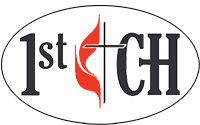The national and global United Methodist Church United Methodist Church is heavily sustained through its churches giving “a portion” of their receipts ”upstream” to denominational need. Our annual apportionments at 1stCH are just over $30,000. As big as that sounds, it represents less than 7% of our annual budget. Below are insights into the seven different United Methodist apportioned funds. Through our upstream giving, we support evangelism, humanitarian aid, education, our bishops, etc…
1. The Black College Fund supports United Methodism’s historically black colleges and universities that create vibrant spiritual environments that encourage students, raising up leaders who are impacting lives and shaping communities. Between 1866 and 1882, following the Civil War, our denomination organized the Freedmen’s Aid Society to help educate African Americans newly freed from slavery. During those 17 years, the society established more than 70 schools, mostly in the South and Southwest U.S. But it wasn’t until 1972 that we established the Black College Fund to provide a constant and reliable support. Today we support 11 historically black higher ed. schools, more than any other denomination.
2. The Episcopal Fund pays bishops’ salaries, covers their office and travel expenses, and provides for their pension and health benefits. As the highest overseers of the United Methodist Church, an 11 million member denomination strong on four continents – North America, Europe, Africa, and Asia. As such, they have no local church to cover the costs of their position. Bishops determine pastoral appointments, guide pastors and congregations in crisis, engage the world on issues secular leader are neglecting, set vision and goals for conferences, etc…
3. The General Administration Fund supports the critical, less visible work of the church. This fund is the oil that lubricates the gears moving the church’s missions and ministries. Without it, the life-giving work of The United Methodist Church would simply not be possible. This fund enables The United Methodist Church to function effectively. Every four years delegates from around the globe, selected by their peers, meet to discern the church’s future at General Conference. Our church’s highest court, the nine-member Judicial Council, executes its directive to uphold church law. The history that formed us, and can still guide us today, is being preserved. All of these are heavily underwritten through the General Administration Fund. One of the reasons it functions so well is our unflagging commitment to accountability and integrity, which in turn ensures the long-term effectiveness of our mission and ministry as a global denomination.
4. The Interdenominational Cooperation Fund works in partnership with ecumenical organizations to bear witness to a common Christian faith. While we’re proud of what makes The United Methodist Church distinct, we’re also committed to recognizing and celebrating the presence and work of Jesus Christ among other Christian fellowships throughout the world. Ignited by Jesus’ prayer, in John 17:21, that the Church’s unity would reflect Jesus’ own oneness with His Father, we’re fostering approaches to ministry and mission that more fully reflect the oneness of Christ’s church in the world. Your giving makes shared ministry through Christ’s body possible today. Because of it, The United Methodist Church is able to partner with other Christians to witness together to the hope we have in Jesus Christ. So that the world may know!
5. Since 1968 the Ministerial Education Fund has helped thousands of men and women become pastoral leaders in The United Methodist Church. It is nurtured and funded by United Methodists through our apportioned dollars to provide:
• programs that encourage men and women to respond to the call to ordained ministry
• seminary scholarships through annual conferences
• funding support for our thirteen U.S. United Methodist seminaries
• continuing education opportunities for pastors across the connection
• course-of-study education opportunities for local pastors
Through this fund, leaders in The United Methodist Church are being sent into the world to serve Jesus Christ and His church. This apportioned fund helps our students come to discover insights, challenges, leadership strengths, and modes of service.
6. Africa University started in the mid-80s when United Methodist African bishops shared their socio-economic and political needs and pleaded for help in building “a university for all of Africa.” The United Methodist Church worldwide responded; and today we’re still investing in Zimbabwe’s first private university for young men and women from all over Africa. These promising leaders are being equipped to transform their content through dynamic programs that include: agriculture and natural resources, education, health sciences, humanities and social sciences, poverty-related issues, management, administration, and theology. The Institute of Peace, Leadership and Governance offers postgraduate diplomas and master’s programs. The Africa University Fund is equipping the next generation of Africans to lead and transform their beloved continent for Christ.
7. The World Service Fund of the United Methodist Church helps fulfill its commitment to “making disciples of Jesus Christ for the transformation of the world.” Therefore, we should be doing what Jesus did in our life together. He discipled those who would lead His church, welcomed those who knew His Father as well as those who didn’t, met physical and spiritual needs (especially of the poor,) and healed the sick. Have you ever wondered if our denomination is doing these things?
The people of The United Methodist Church are engaging the world by imitating the ministry of Jesus—and the World Service Fund makes our outreach possible. It serves as the financial lifeline to a long list of Christ’s mission and ministry, helping to develop leaders in Third World nations, embracing “the least and last and lost,” countering poverty and hunger, and addressing world health issues. As one of our bishops has said, “the World Service Fund is everything that defines our church. It is the way that we connect together, the way that we become powerful in our response to injustice, to poverty, to tragedy, and to need.”
Apportionments and the United Methodist Church

